“The Spark” Art Film Debuts Online — Stephen Shellen’s Tour-de-Force on Post 9/11 Surveillance
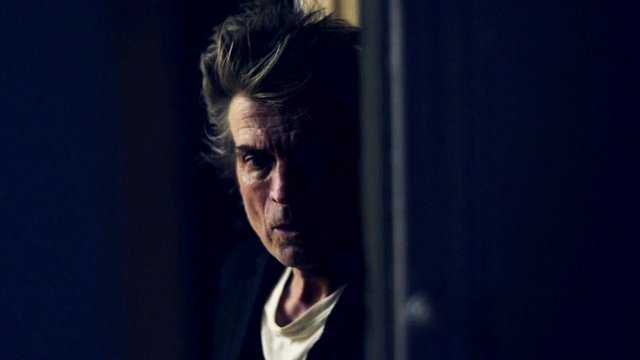
“What if your worst fears become your world, and no one believes a word you say…”, reads the poster headline for this beautifully crafted abstract art film — by Canadian Actor, Filmmaker and Painter Stephen Shellen. With exquisite acting, cinematography and score, arranged in a non-linear narrative, Stephen Shellen weaves a visually stunning, evocative and haunting, depiction of life, for those thrust into the front lines of the battle against the utterly surreal surveillance-state, imposed on America and the world, in the wake of September 11th. If you thought you knew everything the Edward Snowden revelations revealed — you better think again…
By: Thomas F. McFarlan
Originally published in April of 2018 on Medium.com
All images and video © 2018 Stephen Shellen (a.k.a. Shellenberger), used here with permission under a fair use CC0 license.
A prime target of the intelligence agency complex for well over a decade, Stephen Shellen informs his cinematic tour-de-force, with a wealth of first-hand knowledge of surveillance-state crimes. “The Spark” illuminates these insidious and covert surveillance crimes of unimaginable horror, with a leading actor who is held in absolute possession by his character, and simultaneously, poured every last drop of blood, sweat and tears at his command, into financing and directing this seminal 21st century film. Stephen Shellen is historically best known as a mainstream Hollywood actor — with roles in dozens of major Hollywood productions between 1982–1995. He’s most especially known for his performances in the feature films: “A River Runs Through It”, “The Stepfather”, “American Gothic”, “The Bodyguard” and “Damned River”, as well as, the TV series “Counterstrike” and “La Femme Nikita”. In the year 1995, his life as a successful Hollywood actor, came to a sudden and shocking end, when he and his young children, became the subject of unimaginable surveillance and human trafficking crimes… It was this surreal and horrific juncture, some 23 years ago, that sent Stephen on the trajectory that would lead him to create “The Spark”.
With his career, reputation, home, bank accounts, and children stolen from him — and all authorities tasked with protecting him involved in the crimes against him — Stephen was forced to live on the streets of Los Angeles homeless, in the late 1990s, under the spectre of the continuing surveillance abuse and harassment. In early 2004, he reconnected with a woman whom he had a romance with in his youth, growing up in Canada, and began to rebuild his life with her there at this time. Although the surveillance crimes that were directed at him followed him from California to Canada, they were more moderate in intensity, so he was able to began to carve out a career for himself as an abstract painter in Canada — dealing with the subject of deep-state crimes. He also worked as a voice over actor, as well as, acting in and co-writing a number of short art films. In the early 2010s, the idea for creating an autobiographical-fiction formatted, feature film, about surveillance crimes was born. When Stephen happened to strike up a friendship, with a neighbor in Montreal, who was an experienced cinematographer, he proposed the idea to his new friend and they began to plan to work together on the film. As the surveillance crimes Stephen had been suffering through, since the mid 1990s, continued in the 2010s in Canada, he was forced to 100% self-finance the film — or rely on assistance from those passionate about the message, thus willing, to work on the film pro-bono. The shooting of the film was completed in Montreal in 2016. The initial edit of the film, was selected by the 2016 board of the Academy Award qualifying festival, “Festival du Nouveau Cinéma” in Canada — which is attended by over 160,000 people every year, and at which, a handful of Academy Award nominees are selected from. Mr. Shellen decided to further refine “The Spark” in 2017, as his financial situation allowed him to. Now for the first time, the final edit of “The Spark” is publicly available, via the video streaming service Vimeo, on Stephen’s website or directly on Vimeo.
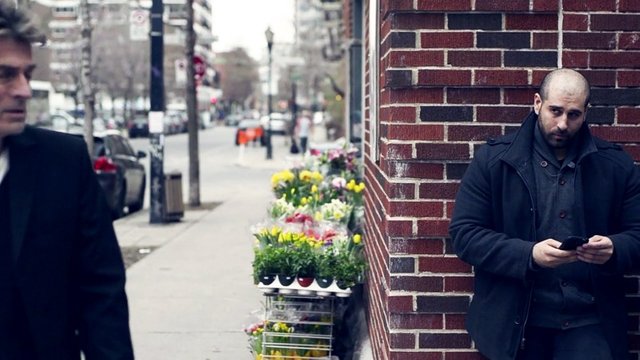
Being a big fan of art-house films, classic films and other Criterion Collection fare, the last work of cinematic artistry that captured my imagination, was the long awaited third season of Twin Peaks, by David Lynch, that aired on Showtime in the Summer of 2017. Along with films by Gus Van Sant, Spike Jonze and Vincent Gallo, Twin Peaks has long been on my top ten list of cinematic works — and the third season that aired some twenty-five years after the last season, in the early 1990s, didn’t disappoint in the least. The actors fully embodied their characters. The cinematography and score defied all conventional approaches. The radically non-linear narrative was classic David Lynch — and the twists and turns of the story always kept one in anticipation. “The Spark” film shares many characteristics with David Lynch’s films — and Lynch’s work would be the closest relatively well-known style of film making to compare it to. The dark esoteric subject matter, evocative and multi-layered non-linear narrative, exquisite and fully embodied acting performances, as well as, the oblique angles and vivid textures in the cinematography all evoke David Lynch comparisons. That said, I don’t believe Lynch’s work has ever focused primarily on tackling largely unknown, deep-state crimes, of gravely serious immediate significance… Nor has David Lynch, not only written and directed, but starred in one of his own films. Moreover, David Lynch has never made a film that was primarily motivated, and informed entirely by, the evolution of his own profound personal suffering — cultivated for well over a decade… So while it’s appropriate to draw comparisons to Lynch’s work, Stephen Shellen’s “The Spark”, stands on its own as an unique ingenious creation, both from the perspective of creative execution and cultural significance.
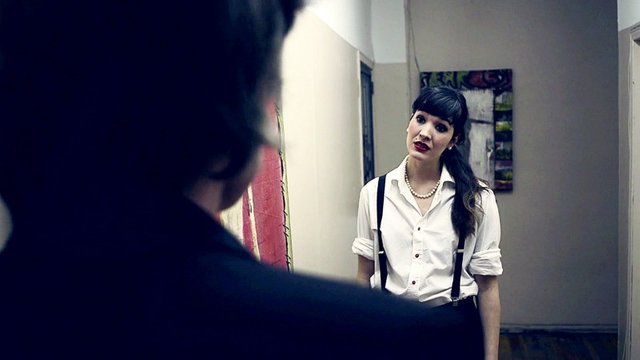
In fact, Stephen Shellen has, with the release of “The Spark” effectively, redefined the boundaries of the potential cultural significance a film can have. What I’m referring to here, when I say “cultural significance”, is an emotionally and visually mesmerizing “truth-bomb” — dropped right on the head of deep-state factions that have been covertly waging an all out information war, on all the world’s populations since September 11th 2001. While there have been a number of documentary formatted films released since 2001, dealing with deep-state crimes, there have been few films, if any, that have done so with an autobiographical-fiction format, a distinctly abstract art film sensibility, as well as, a leading actor-director who has personally lived through the covert horror show he is portraying. The end result is at once, a truly extraordinary work of cinematic art, a radically shocking emotional clarion-call, and an omen of things to come if apathy and fear prevail. There is no precedent for the era we’re living in — or for this film. This is why I feel it’s appropriate to use the rarefied phrase, “a seminal 21st century film”, to describe “The Spark”.
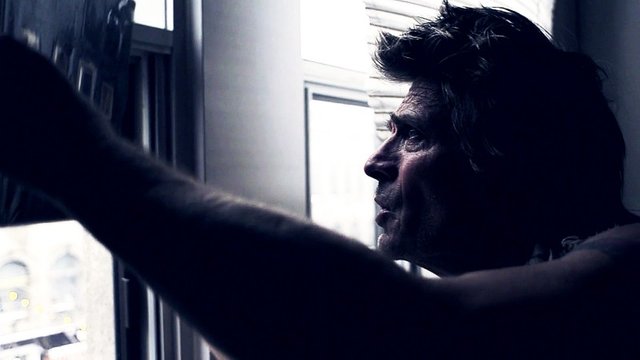
Although “The Spark” can be taken in more casually, as a beautiful and intriguing abstract art film, the gripping emotionally charged performances by Stephen Shellen and Kim Ange, are hard to watch without eventually being drawn into seeking out more information about the genesis of the film — and the overwhelming evidence documenting 21st century surveillance-state crimes. The ability for “The Spark” to work as a film, purely on the level of sensory beauty and intrigue, and separately, as shocking documentation of our utterly fraudulent, and out-of-control, post 9/11 surveillance-state, is fundamental to the film’s unique power. 99% of films on deep-state crimes, are created in a documentary format and lay out evidence with minimal metaphor, story or sensory poetry — usually relying mostly on the potency of the evidence and straightforward personal stories from those affected. Evidence and personal testimonies are obviously fundamental, and the most critically important work to be done in uncovering and documenting crimes, as well as, presenting documentation publicly. But “The Spark” adds an entirely new dimension, to the landscape of content uncovering the reality of surveillance crimes, in the post 9/11 era. This truly unique art film, has the power to touch the audience at the level of imagination and heart, thus inspires viewers, in a way, that motivates them to do their own research into the matter. This is the most powerful way for one to learn, as evidence becomes personalized, thus very hard to forget or ignore, when one uncovers and digests it via their own process of inspiration and discovery.
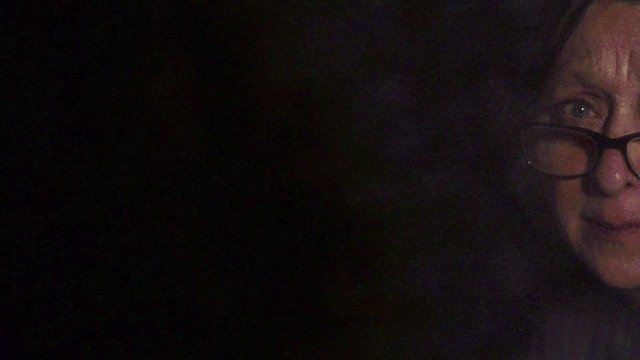
“The Spark” invites the audience to look deeply within themselves — beyond habit, beyond conventions, beyond analysis, beyond the known, beyond fear — to uncover their own inner flame, and live life rooted in this place of authentic power, where the unfathomable flow of life is always leveraged. While this aspect of meaning within the film is more subtle, it’s clearly referenced in the title of the film, and plays out in a poignant moment at the end of the film. When Michael, Stephen Shellen’s protagonist character, is told by Rose — a character who’s an expert on the deep state and surveillance crimes — that he is being targeted for surveillance crimes, because the deep-state elements who have chosen him are, “soulless beings” — and they’re fascinated by him because of his “spark”. Also, the way the ending of the film doesn’t tie the story together in a pretty knot, or at all actually, is executed in a way that demonstrates the impenetrable sovereignty of the human spirit. Michael remains homeless with a few vague answers to questions about his targeting, but only modestly closer to fully understanding, or resolving, the situation than when it first started. Yet he carries on homeless, in utterly precarious and uncertain circumstances, with relative grace and psychological presence — rooted in spirit and embracing the unknown.
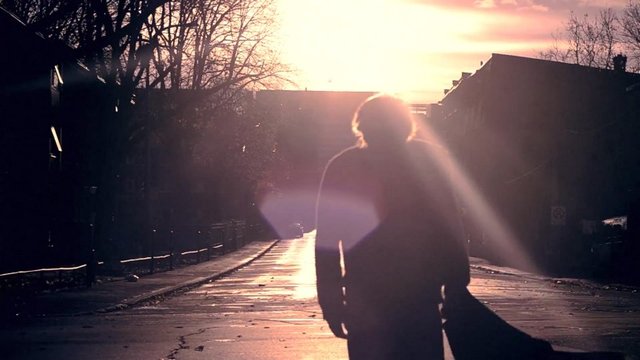
This more subtle theme within “The Spark”, also dovetails with additional 21st century trends — the meteoric rise of interest in post-religion spirituality, and the deep-state push for the rapid development of artificial intelligence (AI). If you ask most any long-standing teacher of post-religion spirituality, if there is a difference in the people seeking out this type of open spiritual study in the last 20 years, you will get an affirmative response. It’s often noted that, in the early 2000s, there was a noticeable rise in interest in, all modalities of, post-religion spirituality — and this trend continued to grow in the late 2000s, and by 2012, interest had exploded and continues to expand dramatically in 2018. The essential component of post-religion spirituality, is a felt inner recognition that all humans, all life on earth, and all matter in existence, is essentially made from spirit — often referred to as consciousness — and that this is our primary identity, existence, and home, that is interconnected with all of creation. The phrase, “the spark”, is a common synonym for spirit, soul, or consciousness — and this is the obvious reference within this film. Additionally, the topic of consciousness, spirit, or as phrased in the title of this film, “the spark”, is the critical missing link, so to speak, in the frantic deep-state drive to develop and normalize artificial intelligence. In fact, a proper understanding of consciousness, could put the whole idea of artificial intelligence to bed, in that, once one understands that deep intelligence isn’t something that can be calculated, or arrived at in any helpful way through premeditated analysis — no matter how ingeniously complex the computation or powerful the computer — one realizes, any development of deep artificial intelligence, would be a mistake, that will ultimately work against human welfare and end up being a disaster. These references to 21st century trends, most likely weren’t intentional, but present nonetheless through synchronicity — an ultimate intelligence beyond the analytical human intellect…
“The Spark” is a harrowing work of cinematic art and truly a seminal 21st century film. An extraordinary creation that evolved through the blood, sweat and tears of an incredibly talented actor, filmmaker and painter, that surrendered in trust and inspiration to the incomprehensible flow of life 23 years ago, and never looked back in anger, but instead, stayed rooted in spirit leveraging the flow — no matter how deep the human tragedy cut. You owe it to yourself, to your family, to your community, to your country and to the world, to see “The Spark”, and support this extraordinary artist and human being, Stephen Shellen, in his future endeavors.
"The Spark" full feature film is available to rent for $3.99, or purchase for $11.76 at Vimeo.com.
For an in-depth read and video presentation on the organized stalking crimes depicted in The Spark, read my comprehensive interactive article on the topic at Medium.com.

Please Support My Efforts… My journalism is unpaid public service work, and I’m subject to organized stalking crimes that have left my finances in ruins… If you would like to support my journalism with a donation, this would be very much appreciated, and will help allow me to focus my time on continuing to expose deep-state crimes against humanity. You can make a donation to me via PayPal at this link.
Please also aggressively share my journalism online, as well as, the journalism of Ramola D, and other genuine truth journalists as much as you can. Be vocal online, and in your local communities, about the reality of organized stalking, 9/11, and other deep-state crimes. Finally, flyer your local area with the custom organized stalking and 9/11 truth flyer I designed. You can download a high resolution version of the flyer here, that will print on a standard 8.5x11 page in black and white.